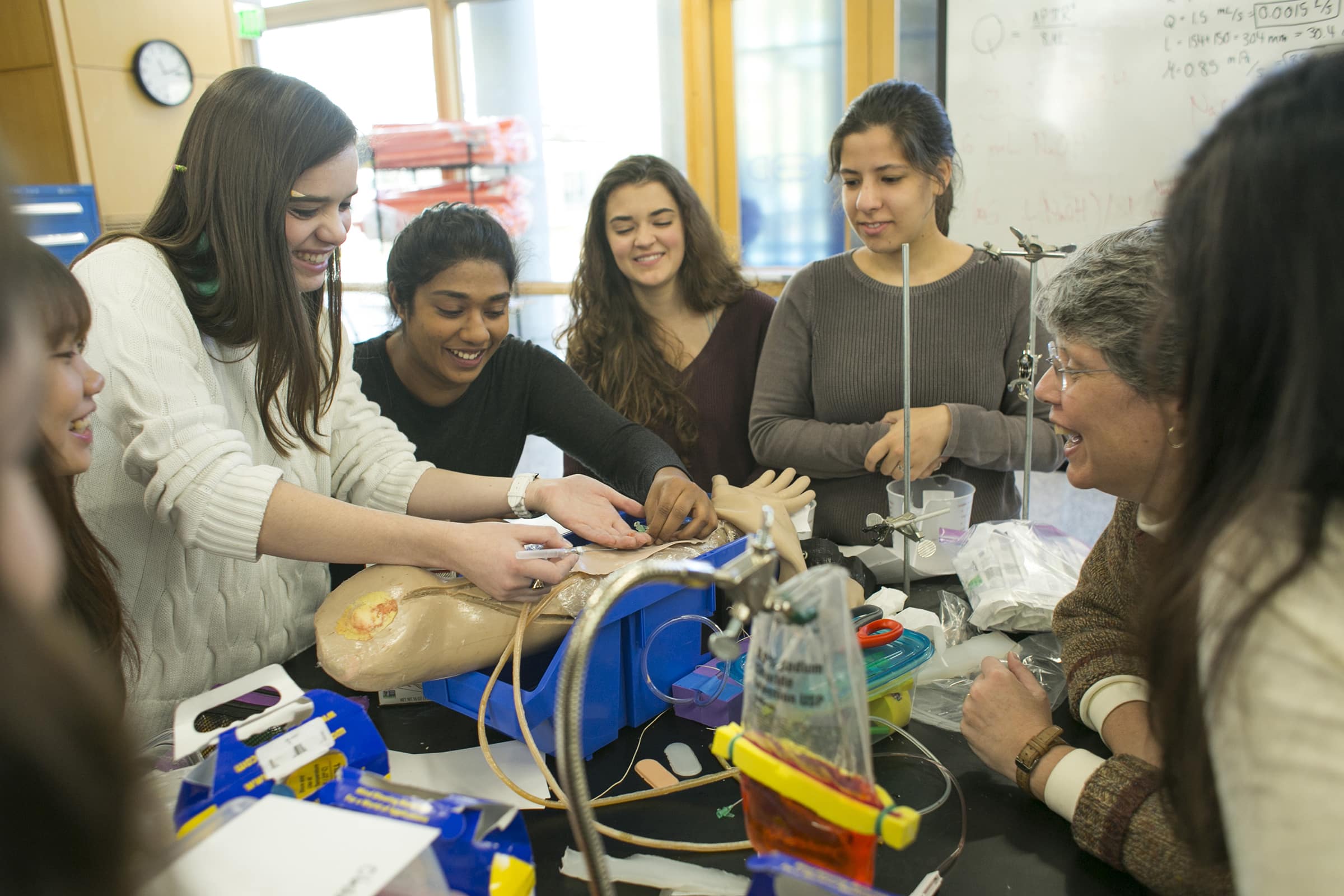Undergraduate Degree

Biomedical engineering, plus a whole lot more
Our students learn the classical engineering disciplines and mathematics, physics, chemistry, and biology. They also gain broad exposure to Duke’s excellent social sciences and humanities offerings.
A Well-Rounded Engineering Education
In addition to rigorous engineering courses, our curriculum includes:
- Immersive first-year courses in engineering design and computational thinking
- A university writing course
- Five courses in the social sciences and humanities
- Two introductory courses each in physics and chemistry
- Two life-science courses and five mathematics courses

With Lots of Options to Explore
To add depth, focus and career preparation, Duke BME undergraduates can pursue:
- Elective-course sequences
- Double majors
- Second majors
- Undergraduate certificates
BME Undergraduate Handbook
For course planning, please refer to this PDF document. It is updated yearly.
Graduation Checklists
| Major or Double Major | Class of 2027 and Later | Class of 2025 and Class of 2026 |
|---|---|---|
| BME | Download » | Download » |
| BME/CS | Download » | Download » |
| BME/ECE | Download » | Download » |
| BME/CEE | Download » | Download » |
| BME/ME | Download » | Download » |

Elizabeth K Bucholz
BME Director of Undergraduate Studies, Claude B. Williams and David M. Hesse Associate Professor of the Practice

Cameron M Kim
Associate Director of Undergraduate Studies, Assistant Professor of the Practice in the Department of BME

Steve Wallace
Senior Lecturing Fellow in the Department of Biomedical Engineering

